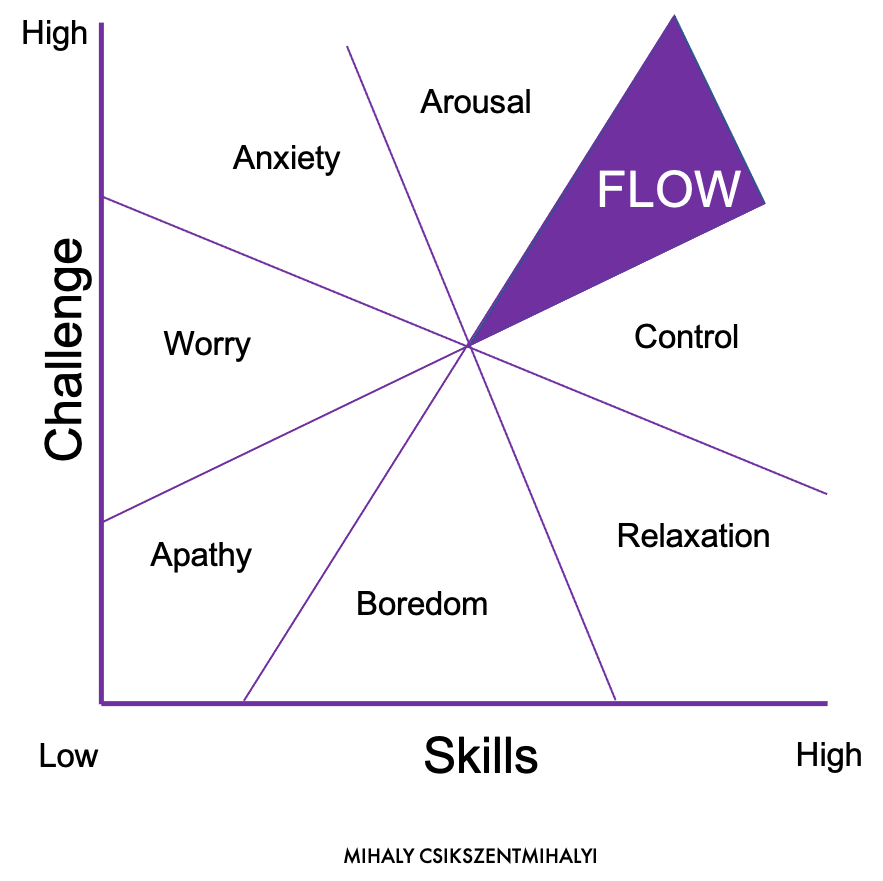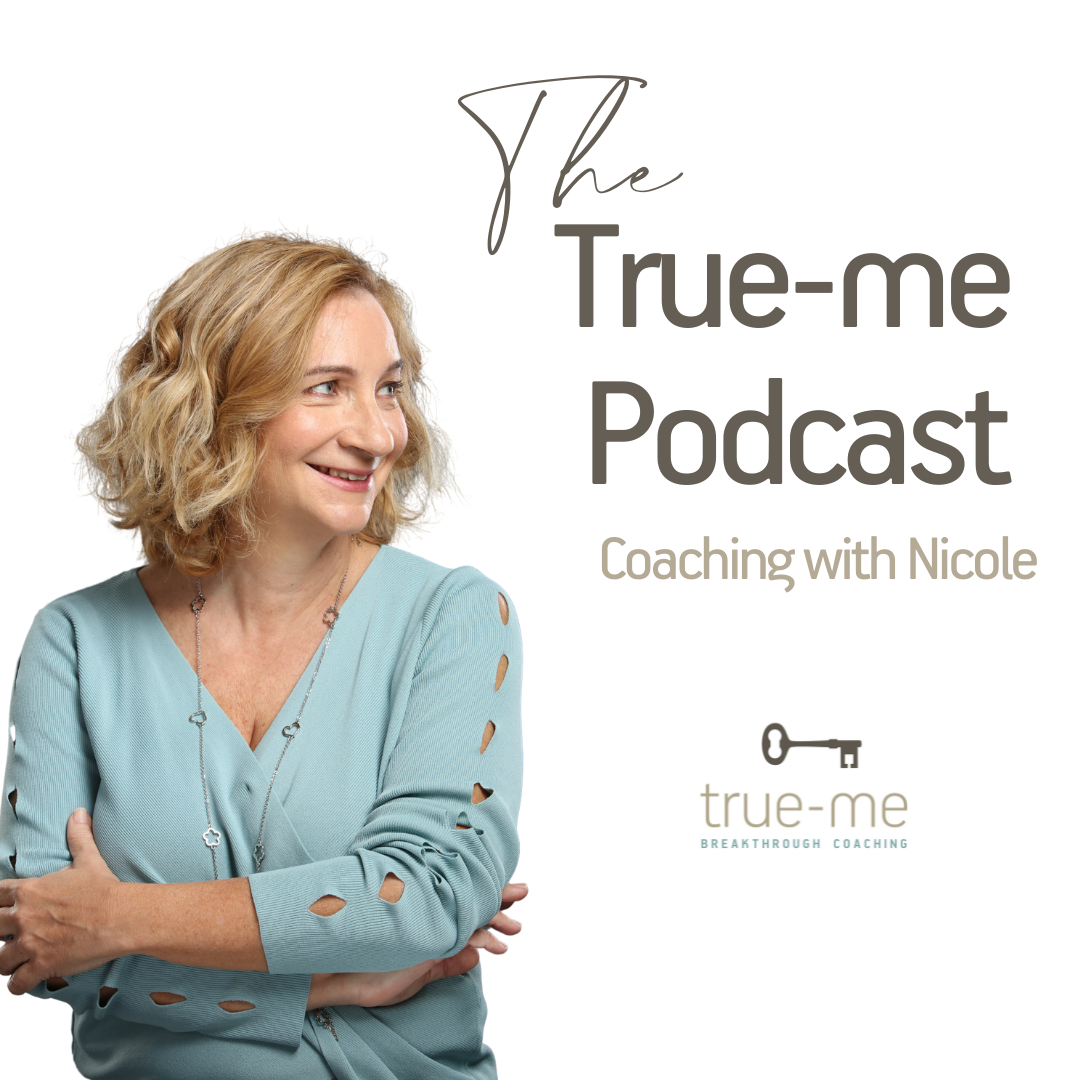On this series, we started our quest for true and lasting happiness discussing why we have wrong perceptions of what it means and how we can reach it. It was also discussed how to overpass those prejudices of the mind, using some specific strategies. In our last article, we presented how we can reinforce our happiness, by encouraging ourselves to express freely and authentically, through using our virtues.
This month, we will continue our focus on the area of Job/Career, and we will discuss about the second factor that is important to ensure we are having the best experience in that field. And that factor is:
- Finding a job that gives you “Flow”
Flow comes from a concept expressed by the positive psychologist Mihaly Csikszentmihalyi, according to which it represents the optimal experience. It is the mental state in which we are performing an activity where we are fully immersed, we are energized, focused, fully involved and we are enjoying it, as we go. It is like being in the “zone”.
Athletes and Musicians report experiencing this, where they are at their peak or performing extraordinarily well, losing track of time, having the deep enjoyment of what they are doing.
But this is also the kind of thing we experience when we are working and the task that we’re doing is all absorbing, like we’re losing track of time. It just feels really good.
Researchers have tried to document what are some of the features of “flow”. And it’s hard to pin point it, because it’s an esoteric thing – nevertheless, we all know when we’re feeling it. And I am sure, most of you have experience it.
So, here are some features of “flow”:
- Challenging but attainable goals
- Strong focused concentration
- The activity is intrinsically rewarding
- Feelings of Serenity
- Loss of self-consciousness
- Timeless/lose track of time passing
- Lack of awareness of physical needs
- Complete focus on the activity itself.
The most important thing is that last point, where someone is completely in the moment.
And the question is really, how can we pick activities that achieve that? What is the sweet spot where we start to feel in the moment so much, when we’re feeling in “flow”?
And what M. Csikszentmihalyi examined is the kind of relation that flow has to the task at hand, how challenging the task is and the amount of skill we bring to it.
In this graph below – on the horizontal axis- it is plotted how hard the activity is, from really low (very easy) to high (very challenging).
On the vertical axis, it is measured, how much skill a person brings to the table, whether they have no skills or whether they have lots of high skill.
And the idea is that we want to be in certain points on this graph to experience “flow”.

Some of the things noted here are bad states we will like to avoid, like when we are low in skill or low in challenge, which can lead to apathy or boredom.
Nevertheless, we also don’t often want to be in the position to be in a job that is low on challenges and for which we have high skills- even though it’s kind of relaxing. And that is because it doesn’t really feel that engaging.
What we want to do is zoom in on that sweet spot at the top. Even better than being aroused or feeling under control, is this point where your skills are getting tested by the maximum challenge. And that is “flow”.
And the idea is that we should seek out careers and activities that plot us in that state, where we are maxing out our skills at the right challenge level.
Μ. Csikszentmihalyi expressed it in a wonderful quote:
“The best moments in our lives are not the passive, receptive, relaxing ones.
The best moments really occur when a person’s body and mind is stretched to its
limits in a voluntary effort to accomplish something difficult and worthwhile.”
Thus, it is not when we are being forced to do something. It is when our skills are at their maximum pushing level to accomplish something that we are really into, that we find intrinsically rewarding.
If we transfer this finding to our everyday lives and our jobs, we realize that this is another point where our predictions – regarding what makes us happy – are incorrect.
A study that was conducted by Lefevre (1988), was trying to capture people’s experience at every moment. The questions asked were:
- “How are you feeling?”
- “How much are you concentrating on what you are doing?”
- “Would you rather be doing something else?”
Here’s the interesting thing they found.
For people who are having stimulating jobs, when they’re at work, they describe being happy. They’re in this high challenge situation and probably, because they’re at that job, their skills are about the right fit to handle it. Thus, they report having these feelings of efficacy, feelings of self-confidence. They don’t use the word “flow” but what people are reporting are those states. It is true that we are more likely to be at flow when we are at work, because those are the times where we face most empowering challenges.
Another interesting finding of the research is that, when people were surveyed when they were doing leisure, they are reporting that they’re experiencing low challenge. And when asked how they are feeling, people report apathy and boredom.
The amazing thing though is that these often are the states that we are choosing to put ourselves in. When we have free time, we often do these boring, low skill, low challenge kind of things that doesn’t actually make us very happy.
And we can see that even in the answers people give to the third question referring to what they would rather be doing:
- If people are at work, they declare that they would rather be at leisure and choosing the kinds of things they could do. But in practice, it seems like the leisure is not making them very happy.
- By the same token, if they’re at leisure, they say that they prefer to keep doing what they are doing, rather than going to work – even if what they are doing is not satisfactory.
It is obvious that there is an interesting disconnect, where it seems we’re not very good at predicting the kinds of things that can actually make us happy.
Being at work and meeting challenges are probably, in the moment, giving people a little bit more the feeling of flow, of conquering tasks and having meaning. More than a lot of the things they do on their leisure time.
Thus, the messages here are:
- Your job is probably not so bad. It’s particularly not bad if you can find ways to challenge yourself at that sweet spot of your skill set.
- Sometimes the leisure activities we choose are more apathetic and boring than we think. If we could have leisure activities that allowed us to gain more skill and challenge us a bit more, we probably would like them a little bit more as well.
Thus, concluding -from what was discussed last time and here- what we really want to be looking for are for opportunities to use our positive strengths and virtues and do activities that would give us some flow. When we seek out those 2 things, we can increase our happiness levels substantially, both at work and at leisure.
On the next article, we will be covering the difference between fix mindset and growth mindset and its impact in our behaviors. So be sure to not miss it!



